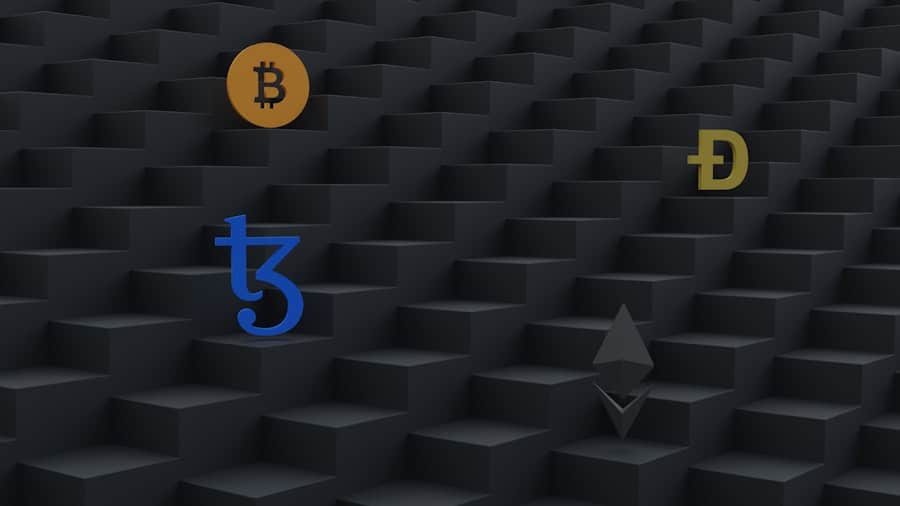Blockchain technology has emerged as a revolutionary force in the digital landscape, fundamentally altering how data is stored, shared, and secured. At its core, a blockchain is a decentralized ledger that records transactions across multiple computers in such a way that the registered transactions cannot be altered retroactively. This technology was initially popularized by cryptocurrencies like Bitcoin, but its applications extend far beyond digital currencies.
The decentralized nature of blockchain ensures transparency, security, and immutability, making it an attractive solution for various industries, including finance, supply chain management, and healthcare. The potential of blockchain technology lies in its ability to eliminate the need for intermediaries, thereby reducing costs and increasing efficiency. In a world where trust is often a commodity, blockchain provides a mechanism for establishing trust through cryptographic verification.
This has significant implications for content monetization, where creators often struggle to receive fair compensation for their work due to the complexities of traditional distribution models. By leveraging blockchain, content creators can directly engage with their audience, ensuring that they retain a larger share of the revenue generated from their work.
Key Takeaways
- Blockchain technology is a decentralized and secure way of recording transactions and data, making it ideal for content monetization.
- The current state of content monetization is dominated by intermediaries who take a large portion of the revenue generated by content creators.
- Intermediaries play a significant role in content monetization, but they also introduce inefficiencies and high fees.
- Blockchain offers advantages for content monetization such as transparency, reduced fees, and direct peer-to-peer transactions.
- However, challenges and limitations of blockchain for content monetization include scalability issues and regulatory concerns.
The Current State of Content Monetization
Content monetization has evolved significantly over the past decade, driven by the rise of digital platforms and the increasing consumption of online media. Traditional monetization methods such as advertising, subscriptions, and pay-per-view models have dominated the landscape. However, these methods often favor large corporations and platforms over individual creators.
For instance, platforms like YouTube and Spotify take substantial cuts from creators’ earnings, leaving many artists and content producers struggling to make a sustainable income. This has led to a growing discontent among creators who feel that their contributions are undervalued. Moreover, the current state of content monetization is characterized by a lack of transparency and fairness.
Creators often have little insight into how their content is being monetized or how revenues are distributed. This opacity can lead to disputes over royalties and payments, further complicating the relationship between creators and platforms. As audiences become more discerning and demand higher quality content, the need for a more equitable monetization model has never been more pressing.
The advent of blockchain technology presents an opportunity to address these challenges by creating a more transparent and direct system for content monetization.
The Role of Intermediaries in Content Monetization

Intermediaries play a crucial role in the traditional content monetization ecosystem. They serve as gatekeepers, facilitating the distribution of content from creators to consumers. This includes platforms like streaming services, social media networks, and advertising agencies that help monetize content through various means.
While intermediaries can provide valuable services such as marketing and audience reach, they also introduce several challenges that can hinder fair compensation for creators. One significant issue with intermediaries is the fees they charge for their services. These fees can significantly reduce the revenue that creators receive from their work.
For example, a musician may earn only a fraction of a cent per stream on platforms like Spotify after the platform takes its cut. Additionally, intermediaries often impose strict contracts that limit creators’ control over their work and how it is monetized. This can lead to situations where creators are locked into unfavorable agreements that do not reflect the true value of their contributions.
This can stifle innovation and diversity in content creation, as only those with access to established platforms are able to thrive.
Advantages of Blockchain for Content Monetization
Blockchain technology offers several advantages that can transform the content monetization landscape. One of the most significant benefits is its ability to facilitate direct transactions between creators and consumers. By eliminating intermediaries, blockchain allows creators to retain a larger share of their earnings while providing consumers with more affordable access to content.
This direct relationship fosters a sense of community and loyalty between creators and their audience, as fans can support their favorite artists without the burden of intermediary fees. Another advantage of blockchain is its inherent transparency and traceability. Every transaction recorded on a blockchain is immutable and publicly accessible, allowing creators to track how their content is being used and monetized.
This transparency can help build trust between creators and consumers, as both parties can verify transactions without relying on third-party assurances. Additionally, smart contracts—self-executing contracts with the terms of the agreement directly written into code—can automate payment processes and ensure that creators are compensated fairly and promptly when their content is consumed. Moreover, blockchain technology enables innovative monetization models that were previously unattainable.
For instance, creators can issue non-fungible tokens (NFTs) representing ownership of unique digital assets such as artwork or music tracks. This allows them to sell their work directly to consumers while retaining control over its distribution and usage rights. The ability to create scarcity in digital content through NFTs can also enhance its perceived value, providing new revenue streams for creators.
Challenges and Limitations of Blockchain for Content Monetization
Despite its potential advantages, the implementation of blockchain technology in content monetization is not without challenges. One significant hurdle is the technological complexity associated with blockchain systems. Many creators may lack the technical expertise required to navigate blockchain platforms or understand how to effectively utilize smart contracts and cryptocurrencies for monetization purposes.
This knowledge gap can create barriers to entry for those who could benefit from blockchain but are deterred by its perceived complexity. Additionally, the regulatory landscape surrounding blockchain technology remains uncertain in many jurisdictions. Governments around the world are still grappling with how to classify cryptocurrencies and blockchain-based transactions, leading to potential legal challenges for creators who wish to adopt these technologies for monetization.
Issues such as taxation on cryptocurrency earnings or compliance with copyright laws can complicate the adoption process for content creators looking to leverage blockchain solutions. Another limitation is the environmental impact associated with certain blockchain networks, particularly those that rely on energy-intensive proof-of-work consensus mechanisms. The carbon footprint associated with mining activities has raised concerns among environmentally conscious consumers and creators alike.
As sustainability becomes an increasingly important consideration in consumer choices, blockchain projects must address these environmental concerns to gain widespread acceptance.
Case Studies of Successful Content Monetization using Blockchain

Several pioneering projects have successfully demonstrated the potential of blockchain technology for content monetization. One notable example is Audius, a decentralized music streaming platform that allows artists to upload their music directly to fans without intermediaries. By utilizing blockchain technology, Audius enables artists to retain 90% of their earnings from streams compared to traditional platforms that typically take a significant cut.
The platform also incorporates features such as fan engagement tools and governance mechanisms that empower artists and listeners alike. Another compelling case study is that of Cryptokitties, a blockchain-based game that allows users to buy, sell, and breed virtual cats represented as NFTs on the Ethereum blockchain. While not directly related to traditional content creation, Cryptokitties exemplifies how blockchain can create new markets for digital assets.
The game’s success has inspired numerous artists and developers to explore NFT marketplaces as a means of monetizing their creative works. In the visual arts sector, platforms like Rarible and Foundation have emerged as marketplaces for artists to sell their digital artwork as NFTs. These platforms allow artists to set their prices and retain control over their work while providing collectors with verifiable ownership through blockchain technology.
The success stories of individual artists who have sold NFTs for substantial sums highlight the transformative potential of blockchain in enabling new revenue streams for creators.
The Future of Blockchain for Content Monetization
The future of blockchain technology in content monetization appears promising as more creators explore its potential benefits. As awareness grows about the limitations of traditional monetization models, an increasing number of artists are likely to adopt blockchain solutions that offer greater control over their work and fairer compensation structures. The rise of decentralized finance (DeFi) could also play a role in shaping new monetization strategies by providing innovative financial tools tailored specifically for creators.
Moreover, advancements in user-friendly interfaces and educational resources will likely lower the barriers to entry for creators unfamiliar with blockchain technology. As platforms continue to develop intuitive tools that simplify the process of creating and selling digital assets on blockchains, more individuals will be empowered to leverage these technologies for their benefit. The integration of artificial intelligence (AI) with blockchain could further enhance content monetization strategies by enabling personalized recommendations based on user preferences while ensuring data privacy through decentralized storage solutions.
This synergy could lead to more engaging user experiences while providing creators with valuable insights into audience behavior.
Conclusion and Recommendations for Content Creators
As the landscape of content monetization continues to evolve, it is essential for creators to stay informed about emerging technologies like blockchain that have the potential to reshape their industry. Embracing these innovations can empower them to take control of their work and explore new revenue streams that were previously inaccessible through traditional models. Creators should consider experimenting with blockchain-based platforms that align with their artistic vision and audience engagement strategies.
By actively participating in decentralized ecosystems, they can build direct relationships with their fans while retaining a larger share of their earnings. Additionally, ongoing education about blockchain technology will be crucial for creators looking to navigate this complex landscape effectively. Engaging with communities focused on blockchain development and attending workshops or webinars can provide valuable insights into best practices for leveraging these technologies.
Ultimately, by embracing blockchain technology and advocating for fairer monetization practices within their industries, content creators can pave the way for a more equitable future where creativity is rewarded appropriately.
If you are interested in exploring the latest technology trends, you may also want to check out The Best Android Apps for 2023. This article provides insights into the top apps that are shaping the future of mobile technology. Just like blockchain is revolutionizing content monetization, these apps are changing the way we interact with our devices.
FAQs
What is blockchain technology?
Blockchain technology is a decentralized, distributed ledger that records transactions across many computers in such a way that the registered transactions cannot be altered retroactively. It is the underlying technology behind cryptocurrencies like Bitcoin and Ethereum.
How does blockchain enable content monetization without intermediaries?
Blockchain technology allows for the creation of smart contracts, which are self-executing contracts with the terms of the agreement between buyer and seller directly written into code. This eliminates the need for intermediaries such as banks or payment processors, reducing transaction costs and increasing transparency.
What are the benefits of using blockchain for content monetization?
Using blockchain for content monetization eliminates the need for intermediaries, reduces transaction costs, increases transparency, and provides a secure and tamper-proof record of transactions. It also enables micropayments, allowing for new monetization models for content creators.
What are some potential use cases for blockchain in content monetization?
Blockchain can be used for royalty payments to content creators, enabling transparent and automatic distribution of earnings. It can also be used for content licensing and rights management, ensuring that content creators are fairly compensated for the use of their work.
What are the challenges of implementing blockchain for content monetization?
Challenges of implementing blockchain for content monetization include scalability issues, regulatory uncertainty, and the need for user-friendly interfaces for mainstream adoption. Additionally, there are concerns about the environmental impact of blockchain due to the energy-intensive process of validating transactions.

